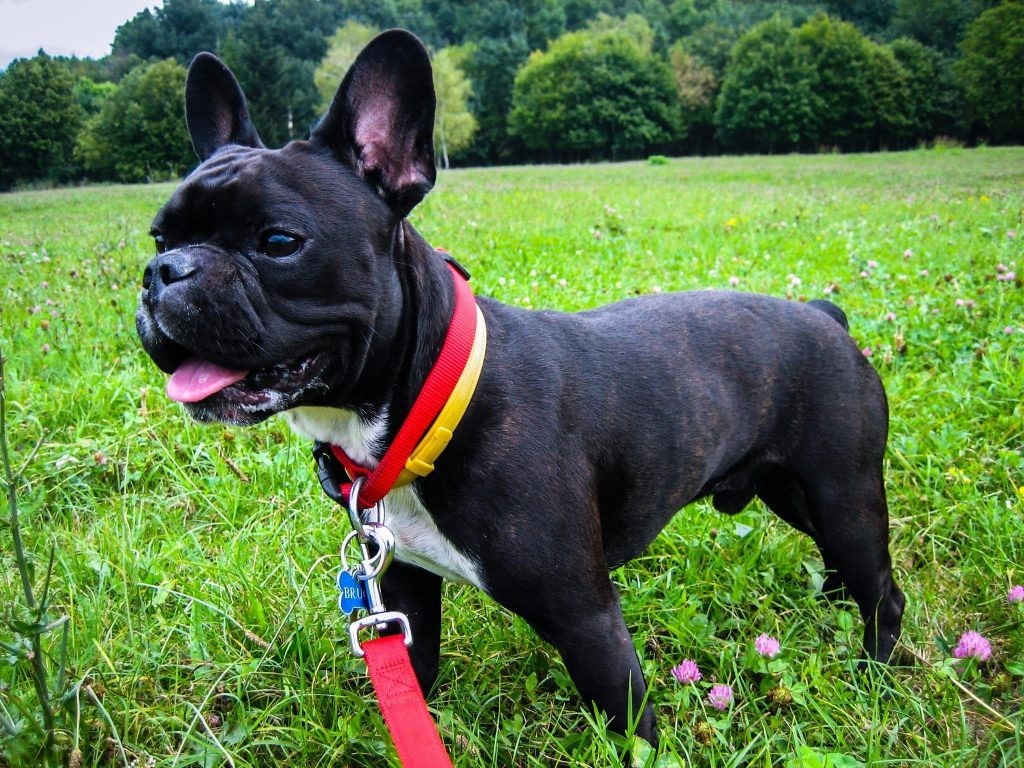
French Bulldogs, ranking 58th among 138 breeds in Stanley Coren's canine intelligence studies, present a fascinating case of multifaceted intelligence. While they may not top obedience rankings, these beloved companions demonstrate remarkable adaptive and emotional intelligence. Their cognitive abilities manifest through strong problem-solving skills, emotional attunement with owners, and unique communication methods. Though sometimes labeled as stubborn due to their independent nature, Frenchies exhibit intelligence through their ability to understand complex social dynamics and adapt to various living situations. This analysis explores the true intellectual capabilities of French Bulldogs beyond conventional metrics.
French Bulldog Intelligence Assessment
Natural Problem-Solving Capabilities
French Bulldogs demonstrate their natural problem-solving abilities through several key behaviors, as revealed in recent studies. According to research from Helsinki University, Frenchies excel at puzzle-based challenges, particularly when motivated by food rewards. They show remarkable persistence in working through complex tasks, even if they may not be the fastest to complete them. This natural problem-solving capability manifests in their daily activities, such as figuring out how to access treats or toys in hard-to-reach places.
Intelligence Testing Performance
Standardized canine intelligence tests provide insights into French Bulldog cognitive abilities. Recent assessments show that Frenchies typically score between 8-10 points out of 15 on standardized tests measuring:
- Problem-solving speed (treat retrieval tasks)
- Memory retention (cup game exercises)
- Association learning (leash recognition)
- Spatial reasoning (furniture navigation)
While these scores place them in the "average intelligence" category, it's important to note that the tests primarily measure working intelligence rather than their notable strengths in emotional intelligence and adaptive learning. Their performance varies significantly based on individual motivation and environmental factors during testing.
Understanding French Bulldog Intelligence: Types and Rankings
Multiple Intelligence Categories
While previous sections covered natural problem-solving abilities, French Bulldogs exhibit three distinct types of intelligence according to canine behavior experts:
- Obedience Intelligence: Ranked 58th out of 138 breeds
- Adaptive Intelligence: Strong ability to learn from experiences
- Instinctive Intelligence: Bred specifically for companionship
Intelligence Rankings and Comparisons
Building on earlier test performance data, comprehensive studies provide additional context for French Bulldog intelligence rankings:
- Mental Capacity: Comparable to 2-2.5 year old children
- Vocabulary Understanding: Can learn 165 words/signals on average
- Command Response: 40% first-time compliance rate
- Learning Speed: 40-80 repetitions needed for new commands
- Comparative Standing: Ranked in "fair working dog" intelligence category
This data shows that while French Bulldogs may not rank among the most intelligent breeds in traditional working metrics, they demonstrate notable capabilities in social intelligence and adaptive learning - traits particularly valuable for their primary role as companion animals.
Training and Enhancing Your French Bulldog's Intelligence
Optimizing Training Methods
While previous sections covered general intelligence assessment, specific training techniques can maximize a French Bulldog's learning potential. According to research, the most effective training approaches include:
- 5-10 minute training sessions multiple times per day to accommodate their shorter attention spans
- Puzzle toys and interactive games that provide mental stimulation
- Scent work activities despite their brachycephalic nature
- Clicker training for clear and consistent communication
- Early socialization to develop better adaptive intelligence
Environmental Enrichment Strategies
Building on earlier discussions of intelligence types, studies show that environmental enrichment significantly impacts cognitive development in French Bulldogs:
- Providing varied textures and surfaces for exploration
- Rotating toys weekly to maintain novelty and interest
- Creating "search and find" games with treats
- Offering opportunities for supervised social interaction
- Using food puzzles that require problem-solving
- Incorporating physical activity with mental challenges
The key is maintaining consistency while gradually increasing difficulty as the dog progresses. Training sessions should focus on positive reinforcement, with treats and praise used strategically to maintain engagement. Regular mental stimulation through these activities has been shown to improve both working intelligence and adaptive learning capabilities in French Bulldogs.
Conclusion
Research indicates that French Bulldogs demonstrate average to above-average intelligence across multiple dimensions, ranking 58th out of 138 breeds in obedience intelligence. While they may not be the fastest learners, requiring 40-80 repetitions for new commands, they excel in adaptive intelligence and social-emotional capabilities that make them excellent companion animals. Their problem-solving abilities and capacity to learn approximately 165 words/signals demonstrate meaningful cognitive capabilities comparable to a 2-2.5 year old child.
The implications of these findings suggest that French Bulldogs can be successfully trained and mentally stimulated through appropriate methods tailored to their learning style. Short, consistent training sessions using positive reinforcement, combined with environmental enrichment through puzzle toys and interactive games, can help maximize their cognitive potential. While they may not rank among the most intelligent working breeds, their strong adaptive intelligence and companionship traits make them well-suited for their intended role as family pets. Future research could focus on developing specialized training protocols that leverage their particular cognitive strengths.